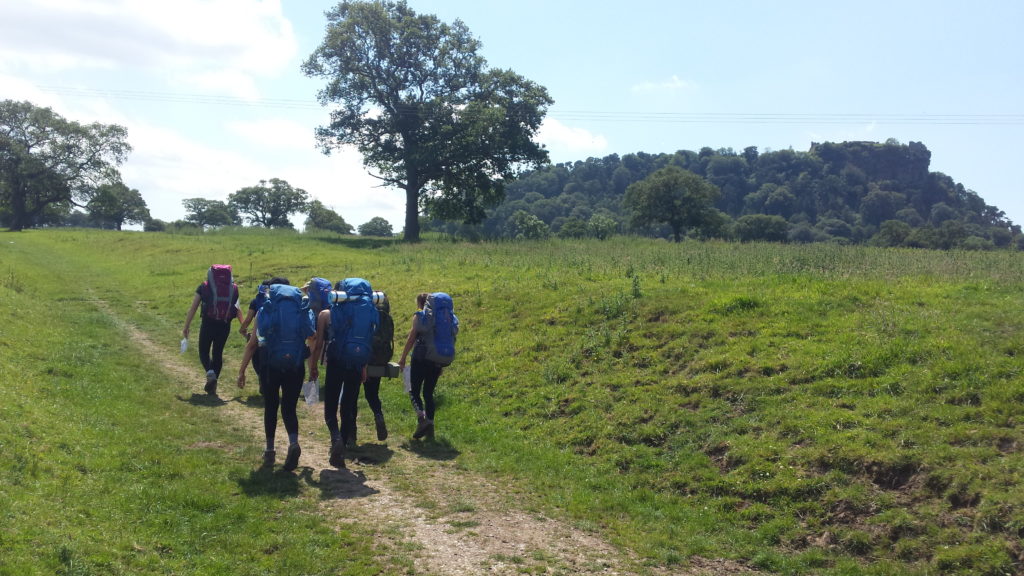Celebrating Our New Lead Schools for Music Education in Cheshire West and Wirral
On Thursday, 26th June, Edsential proudly welcomed six schools from...30 Jun 2025

The programme aims to have lasting benefits for the mental wellbeing of young people through physical activity. Promoting positive mental health in children through supporting them in both identifying and achieving their personal best goals.
Progression is recorded against 3 core outcomes
Why is this programme needed?
Schools tell us that they have a growing number of children who are struggling with their self confidence in physical activity lessons, with poor body image, increased anxiety and a lack of self belief. This manifests itself with children struggling to engage in lessons, poor behaviour and in many cases obesity.
What did we deliver?
Over a 6 week period in each school we delivered 6, 40 minute sessions. The programmes were designed specifically to meet the needs of the small groups who had been identified by the school.
We spent time talking to the children about how they were feeling, gaining their trust and encouraging them to share personal views about physical activity. Together we designed a physical activity programme identifying areas where they wanted to achieve some measurable improvement and gain a sense of achievement and success. The goals were personal and not primarily competitive.
Areas of the programme included agility, co-ordination, speed and strength while developing life skills such as resilience, self motivation and team work.
After each session children record their feelings and self assess against the goals they have set themselves recording achievements on their individual personal best card.
What was the impact on the pupils involved?
Our evaluation focused on three key questions we asked at the beginning and end of the programme.
80% of children when beginning the programme told us that they struggle with their confidence in physical activity lessons, the reasons included:
Children told us:
“I get too out of breath and can’t keep up in the games”
“I worry I won’t know what to do and no one will want me in their team”
“This could give me a chance to get fitter”
After the programme 75% of children said that they felt more confident. This ranged from feeing fitter “ I don’t get so out of breath in PE lessons now.” To reporting a real confidence in trying new activities and enjoying a measure of success. “ I never knew I would actually be good at a sport”
Teachers identified that this was a key issue for a high percentage of the participants who regularly sat out of PE lessons and were completely disengaged. 70% of children when asked responded that they often sit out for parts or all of the PE lessons or had to be removed from lessons for their behaviour.
“It’s easier to sit out because I’m rubbish at PE”
“I can’t remember the last time I stayed in a whole PE lesson”
“I keep forgetting my kit because I can’t keep up”
“I just keep losing my temper”
Resilience is clearly a major challenge for children who are participating in the personal best programme. When questioned at the end of the programme 65% of children said they felt they didn’t give up as easily and really tried to stay calmer if things got difficult in a lesson with 20% unsure, for 15% of children resilience was still a big issue for them. The sessions on teamwork and communication skills aim to equip them with practical coping skills to try out in lessons.
“I try to take a deep breath and not argue all the time”
“I have never seen Jo last a whole PE lesson until last week”
“I do try, but I struggle when my team isn’t winning.
At the start 90% of participants reported being pleased they had been selected for the programmes and particularly liked the small groups and flexibility within each session.
10% weren’t sure, but feedback included:
“I love coming and trying out new games.”
“It’s so much easier to join in when you aren’t with the whole class”
“I can get things wrong without anyone laughing”
“It’s great we can plan our own lesson”
At the end of the programmes 95% responded they would like to take part in more Physical activity.
“I have learnt a new skill that I am actually good at….where can I find a volleyball club.”
Feedback from staff and children indicates that the strength of the Personal best programme is having a unique focus. Utilising physical activity to make positive changes to the emotional, social and mental health of young people. Challenging them to be the best they can be.
For more information on the Personal Best programme please visit the Personal Best webpage or phone: 0151 541 2170